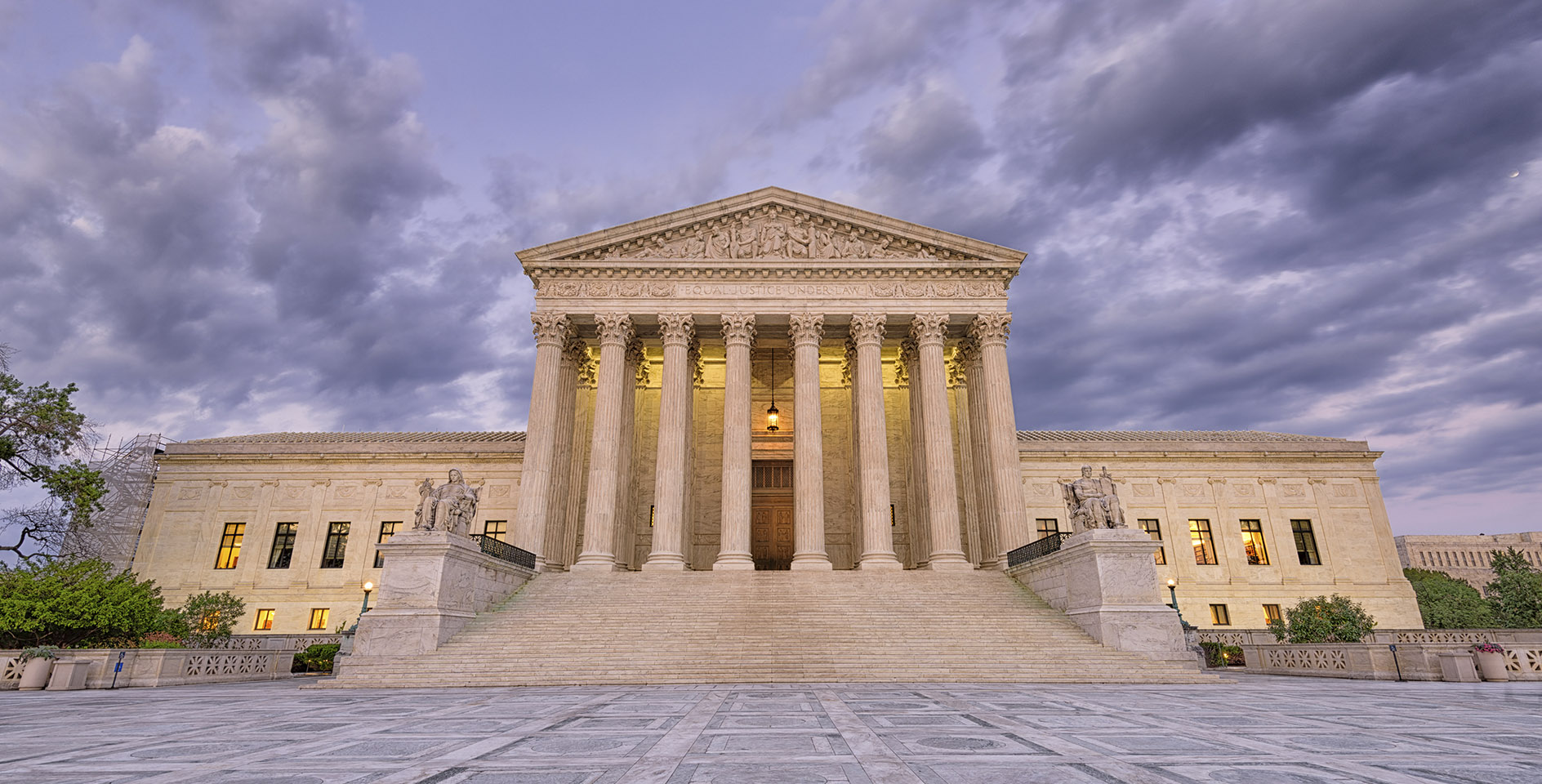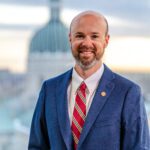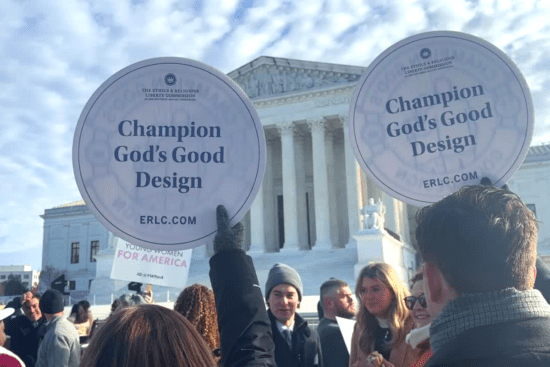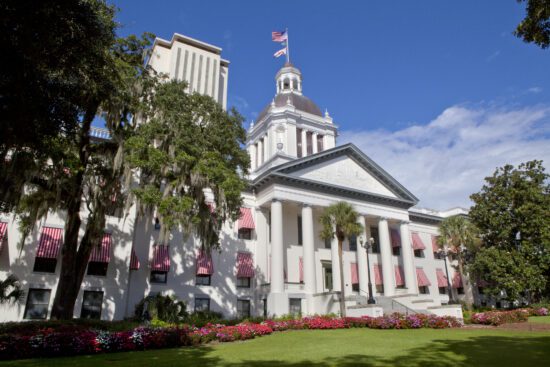For the second time in June, Christians and social conservatives have reason to celebrate the rulings handed down by the United States Supreme Court.
In early June, the Supreme Court handed down a decision telling government officials to respect religious viewpoints in the Masterpiece case.
Today, the United States Supreme Court dealt a major blow to government that would attempt not only to restrict speech, but to compel speech that conflicts with deeply held convictions.
What’s at stake in the case commonly referred to as NIFLA?
National Institute of Family and Life Advocates (NIFLA) v. Becerra challenges a California law that requires pro-life pregnancy centers to provide information to women about how and where to obtain a free or low-cost abortion. The law targets these pregnancy centers and imposes a fine if they are found to be in noncompliance. In other words, AB 775—also known as the Reproductive FACT Act—forces organizations to violate their very reason for existence. It also undermines their ability to meet a vital need of the women of California by offering them a pro-life, pro-woman alternative to abortion.
This court case centered around the ability of the state to compel individuals to act against their conscience. This is a fundamental overreach of state power on constitutional, moral, and religious grounds.
Today, the Supreme Court argued in a 5-4 decision that the legislature of California overstepped in forcing pro-life pregnancy care centers to advertise on behalf of abortion providers.
Today’s outcome is a tremendous win—a win for religious liberty, free speech, and the dignity of the unborn. That all three are coupled together should not be ignored.
As ERLC President Russell Moore noted, “The court affirmed the freedom of speech, freedom of expression, that the state can't force pro-life organizations to participate in abortion.”
The majority opinion was written by Justice Thomas and was joined by Chief Justice Roberts, and Justices Kennedy, Gorsuch, and Alito. Justice Kennedy wrote a separate concurring opinion, which was joined by Chief Justice, and Justices Kennedy and Alito. Justice Breyer, joined by Justices Sotomayor, Ginsburg, and Kagan wrote a dissenting opinion.
The decision itself is a sweeping win. Justice Clarence Thomas wrote decisively for the Court, noting that the law wrongly alters the content of speech in support of the government’s viewpoint: “The licensed notice is a content-based regulation of speech. By compelling individuals to speak a particular message, such notices “alte[r] the content of [their] speech.” (7)
Justice Thomas expressed further concern about the history of compelled speech between doctor and patient and how past abuses are relevant to the case at hand: “Throughout history, governments have “manipulat[ed] the content of doctor-patient discourse” to increase state power and suppress minorities:
For example, during the Cultural Revolution, Chinese physicians were dispatched to the countryside to convince peasants to use contraception. In the 1930s, the Soviet government expedited completion of a construction project on the Siberian railroad by ordering doctors to both reject requests for medical leave from work and conceal this government order from their patients. In Nazi Germany, the Third Reich systematically violated the separation between state ideology and medical discourse. German physicians were taught that they owed a higher duty to the ‘health of the Volk’ than to the health of individual patients. Recently, Nicolae Ceausescu’s strategy to increase the Romanian birth rate included prohibitions against giving advice to patients about the use of birth control devices and disseminating information about the use of condoms as a means of preventing the transmission of AIDS.” (12–13)
According to Justice Kennedy, “It does appear that viewpoint discrimination is inherent in the design and structure of this Act. This law is a paradigmatic example of the serious threat presented when government seeks to impose its own message in the place of individual speech, thought, and expression.” (1)
He argues further:
For here the State requires primarily pro-life pregnancy centers to promote the State’s own preferred message advertising abortions. This compels individuals to contradict their most deeply held beliefs, beliefs grounded in basic philosophical, ethical, or religious precepts, or all of these. And the history of the Act’s passage and its underinclusive application suggest a real possibility that these individuals were targeted because of their beliefs. (1-2)
Notice in this line how issues of religious conviction, speech, and ethics are all seamlessly interwoven to combat the state’s overreach.
The bottom line from the majority opinion: Government should not be in the practice of compelling speech from private actors.
ADF keeps winning, SPLC keeps losing
Though it’s a tertiary issue unrelated directly to the outcome of NIFLA, a related issue on how civil discourse ought to proceed is relevant to today’s decision.
The Southern Poverty Law Center (SPLC) is a progressive activist group that labels organizations that disagree with its views as “hate groups.” This is a significant matter in the culture because the SPLC is considered a mainstream source for tracking hate groups in the United States.
Tragically and mistakenly, they have listed the Christian legal advocacy group Alliance Defending Freedom—the legal group that that sought to strike down the coercive California law—a hate group because they disagree with ADF’s views on marriage, gender, sexuality, and rights of the unborn.
Yet, for the second time in a month, Alliance Defending Freedom (ADF) has won before the Supreme Court. This is the ninth win for Alliance Defending Freedom in seven years, which speaks to the gravity and expertise of the organization.
This shows the unfairness and illegitimacy of the Southern Poverty Law Center’s discretion in naming ADF a “hate group.” It’s also worth asking an important question: When will the Southern Poverty Law Center back down on its erroneous claim that Alliance Defending Freedom is a hate group, or, alternately, when will it decide to list the Supreme Court a hate group as well, since the Supreme Court is now in the habit of siding with and validating ADF arguments?
California’s defeat setting a positive trend?
It’s common in American culture for the state of California to be considered a national trendsetter. If that’s the case, then citizens should be relieved that the heavy-handed and brazen disregard for liberty on the part of the California legislature was soundly defeated. Justice Anthony went so far as to compare actions of the California legislature to actions consistent with an authoritarian regime:
It is forward thinking to begin by reading the First Amendment as ratified in 1791; to understand the history of authoritarian government as the Founders then knew it; to confirm that history since then shows how relentless authoritarian regimes are in their attempts to stifle free speech; and to carry those lessons onward as we seek to preserve and teach the necessity of freedom of speech for the generations to come. Governments must not be allowed to force persons to express a message contrary to their deepest convictions. Freedom of speech secures freedom of thought and belief. This law imperils those liberties.
Given the multitude of complex cases involving religious liberty and free speech in America, onlookers should breathe a sigh of relief that the Supreme Court sided so decisively with the cause of liberty and freedom. We should also rejoice that progressive governing tactics were handed an embarrassing defeat. If California is a trendsetter, we should welcome such a trend that pushes back on government power.
At a time when Christians and social conservatives who value the Bible’s teachings on life, marriage, and religious liberty feel beleaguered, we should rejoice in a system of government that attempts to adjudicate cultural disputes with fairness and equality toward all citizens.










